The Story Project
Improving Access to Family Planning for Indigenous Peoples through Storytelling
Our Shared Values
Through The Story Project we seek to explore and share Indigenous Peoples’ experiences of accessing family planning services in BC. Our team uses a community-driven, community-engaged methodology that centres Indigenous perspectives.
Through this project we will identify and strengthen existing networks of community-based care providers and knowledge holders who are experts in family planning.
We follow an equity-focused approach where community partners and study participants are valued collaborators in our research. We believe in doing work in a good way that aligns with the First Nation’s Principles of OCAP®, decolonizing feminist methodology, and trauma and violence informed care approaches.
Guiding Principles
The Story Project team is privileged to receive guidance and oversight from the Sacred Stories Collaborative advisory circle, originally supported by the Vancouver Coastal Health Indigenous Health Team. In the first phase of our project, Kinship and Collaboration, the circle developed a set of guiding principles and values for their participation in research.
Research is participatory
Have a light heart
Focus on building relationships, safety, and trust
About the project
-
The Story Project is a strengths-based, community-driven project in partnership with Indigenous community members. Together we are gathering and share knowledge about Indigenous Peoples’ experiences of accessing family planning services in BC (contraception and abortion care). The project is conducted by a team of settler and Indigenous researchers and students. Every step of the project is guided by our advisory circle.
The project involves interviews with Indigenous community members and service providers. Through these interviews we are exploring:
What does ‘family planning’ mean to Indigenous communities?
What are Indigenous clients' experiences of accessing family planning health services?
Have clients encountered racism and stereotypes in accessing family planning health services and what did those experiences involve?
What are the roles of doulas and midwives in Indigenous family planning services?
We are also engaging in knowledge sharing activities to interpret and communicate the research with Indigenous community partners, health care professionals, and decision makers.
The Story Project is funded by the Canadian Institutes of Health Research (2021-2026).
-
COMMUNITY PARTNERED & ENGAGED
Operationalizing principles of OCAP (Ownership, Control, Access, and Possession). Indigenous-led governance structure to collaboratively design and develop research. Integrated knowledge translation to keep research accountable to community.
DECOLONIZING, INDIGENOUS FEMINIST
Methodological decisions and analysis informed by Indigenous and feminist theoretical frameworks to support Indigenous goals of self-determination, decolonization, and reproductive justice.
TWO-EYED SEEING APPROACH
Data collection and analysis methods that bridge Indigenous and non-Indigenous ways of knowing and knowledge-making.
-
PHASE 1: KINSHIP & COLLABORATION (2021)
Relationship-building and collaboration to build trust, capacity, and support.
PHASE 2: GATHERING & EXCHANGING STORIES (2022-2024)
Data collection and analysis through interviews and sharing circles.
PHASE 3: KNOWLEDGE TRANSLATION (2025-)
Translating knowledge into action through end-of-project activities with the research team, collaborators, and participants.
-
FILL KNOWLEDGE GAPS THROUGH COMMUNITY-LED RESEARCH
The knowledge we co-create will provide insight into Indigenous Peoples’ experiences of accessing family planning services in BC. Our community-driven, community-engaged methodology centres Indigenous perspectives.
BUILD A COALITION OF INDIGENOUS & ALLIED EXPERTS
Our collaborations will build capacity for Indigenous students and staff and will strengthen existing networks of care providers and knowledge holders who are experts in family planning.
CREATE POSITIVE CHANGE
Our research will lead to recommendations for models of family planning care that are culturally appropriate, empowering, and accessible, and in turn enhance Indigenous peoples' health and wellbeing.
Infographics
An infographic summary of the Story Project principles, method, advisory, results, and next steps. The logo and illustrations were created by Indigenous graphic artist, Nikki Bordignon.
A graphic representation of the guiding principles for practicing relationality in research with Indigenous communities. This work was facilitated by Story Project co-lead Danette Jubinville.
Graphic recording of a Kitchen Table Talk facilitated by MSc student Piper Scott-Fiddler, to explore Métis peoples’ needs for contraception and abortion health services.
HEARTS Meeting
In spring 2025 we convened ‘Honouring Equity and Access in Indigenous Reproductive and Trauma Informed Services’ (HEARTS), a meeting of Indigenous and allied scholars conducting research to improve sexual and reproductive health care for Indigenous communities. This infographic provides a graphic summary of the event.
Sacred Stories Collaborative
The Sacred Stories Collaborative (SSC) is a community-led advisory that amplifies Indigenous voices, stories, and experiences through strengths-based, culturally grounded research and storytelling. Rooted in Indigenous methodologies, the Collaboratives' work creates and centres safe spaces for dialogue, healing, and knowledge sharing around research studies and topics like reproductive justice, health, and family well-being.
Who We Are
-
Sarah Munro
NOMINATED PRINCIPAL INVESTIGATOR
PhD, MA, BA (Hon)
Assistant Professor, Department of Obstetrics and Gynaecology, UBC
Co-Director, Contraception and Abortion Research Team
-
Danette Jubinville
PRINCIPAL INVESTIGATOR
PhD Candidate, Simon Fraser University
Director, Indigenous Women & Family Health, Indigenous Health | Vancouver Coastal Health
Co-Founder, ekw'i7tl Indigenous Doula Collective
-
Miranda Kelly
PRINCIPAL INVESTIGATOR
BSc, MPH
ekw'i7tl Indigenous Doula Collective
-
Wendy Norman
CO-INVESTIGATOR
MD, CCFP, FCFP, DTM&H, MHSc
Professor and CHIR-PHAC Chair, Applied Public Health Research, Department of Family Practice, UBC
Co-Director, Contraception and Abortion Research Team
-
Britanny Bingham
CO-INVESTIGATOR
MD, MPH
Director of Indigenous Research, Centre for Gender and Sexual Health Equity
Director of Indigenous Research, Vancouver Coastal Health Indigenous Health
Assistant Professor, Division of Social Medicine, UBC
-
Renee Monchalin
CO-INVESTIGATOR
PhD, Assistant Professor
School of Public Health and Social Policy
University of Victoria
-
Stephanie Begun
CO-INVESTIGATOR
PhD, MSW, RSW, Assistant Professor
Factor-Inwentash Faculty of Social Work
University of Toronto
-
Samantha Martin-Ferris
STUDENT
MSc Student
-
Piper Scott-Fiddler
STAFF
Research Coordinator
MSc
-
Felicia Danesi
STUDENT
MHA Student
-
Aleyah Williams
STAFF
Research Manager
-
Jessy Dame
STAFF
Research Coordinator
RN (C), MSN
-
Brooke Mounsey
STUDENT
MD student
-
Madeleine Ennis
RESEARCH ASSOCIATE
PhD, BSc (Hon)
Reproductive Choices Lab
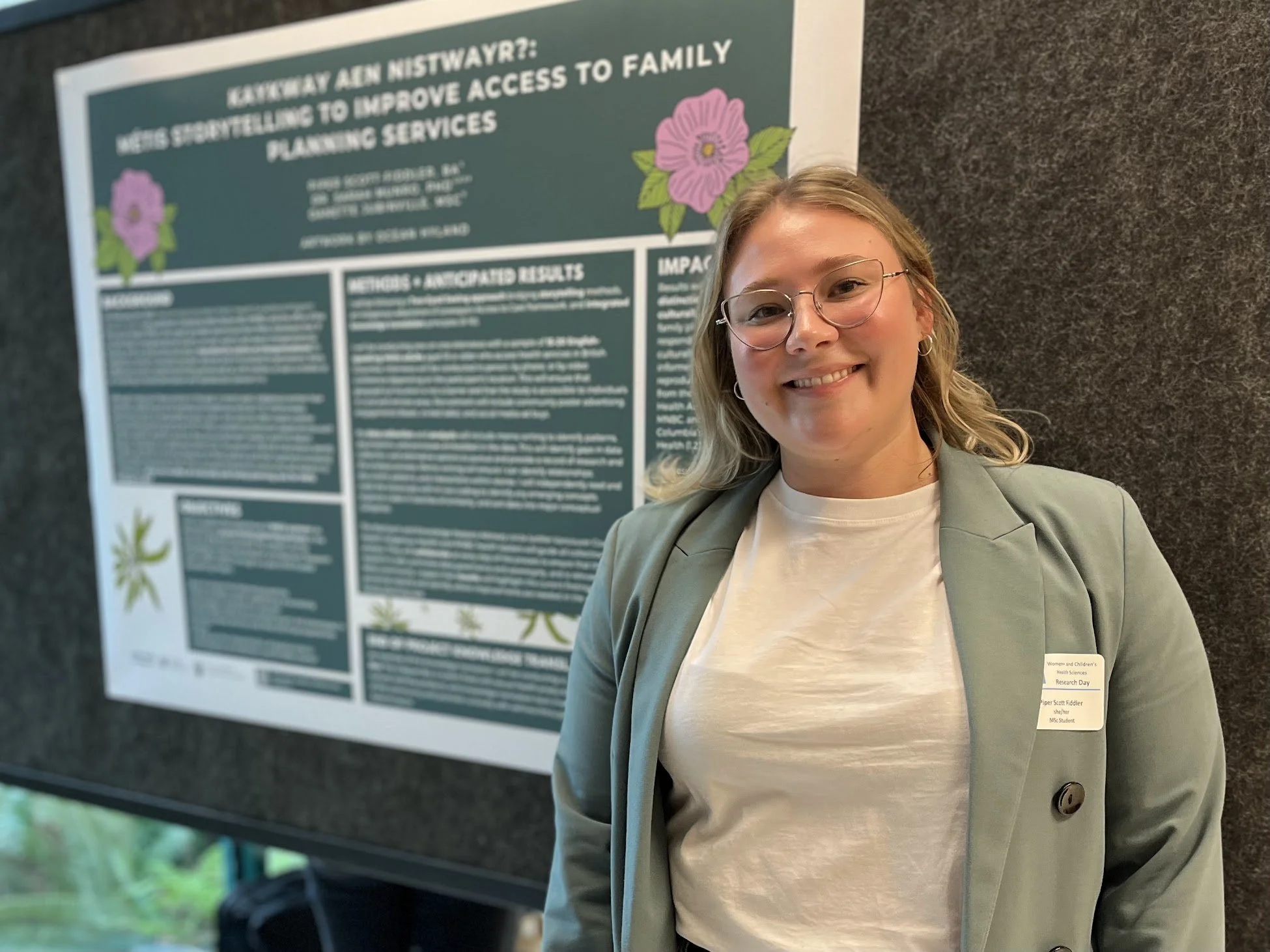

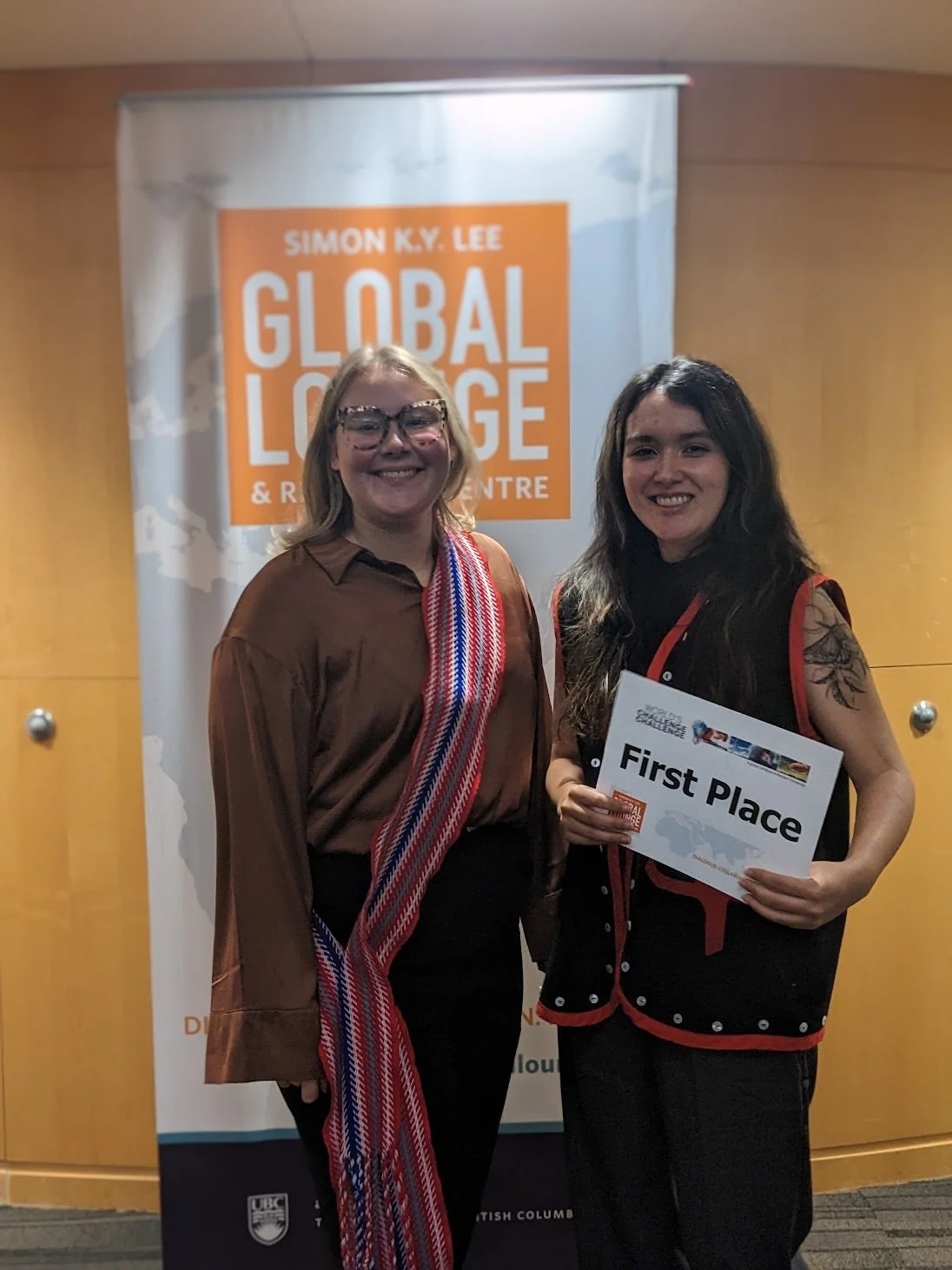
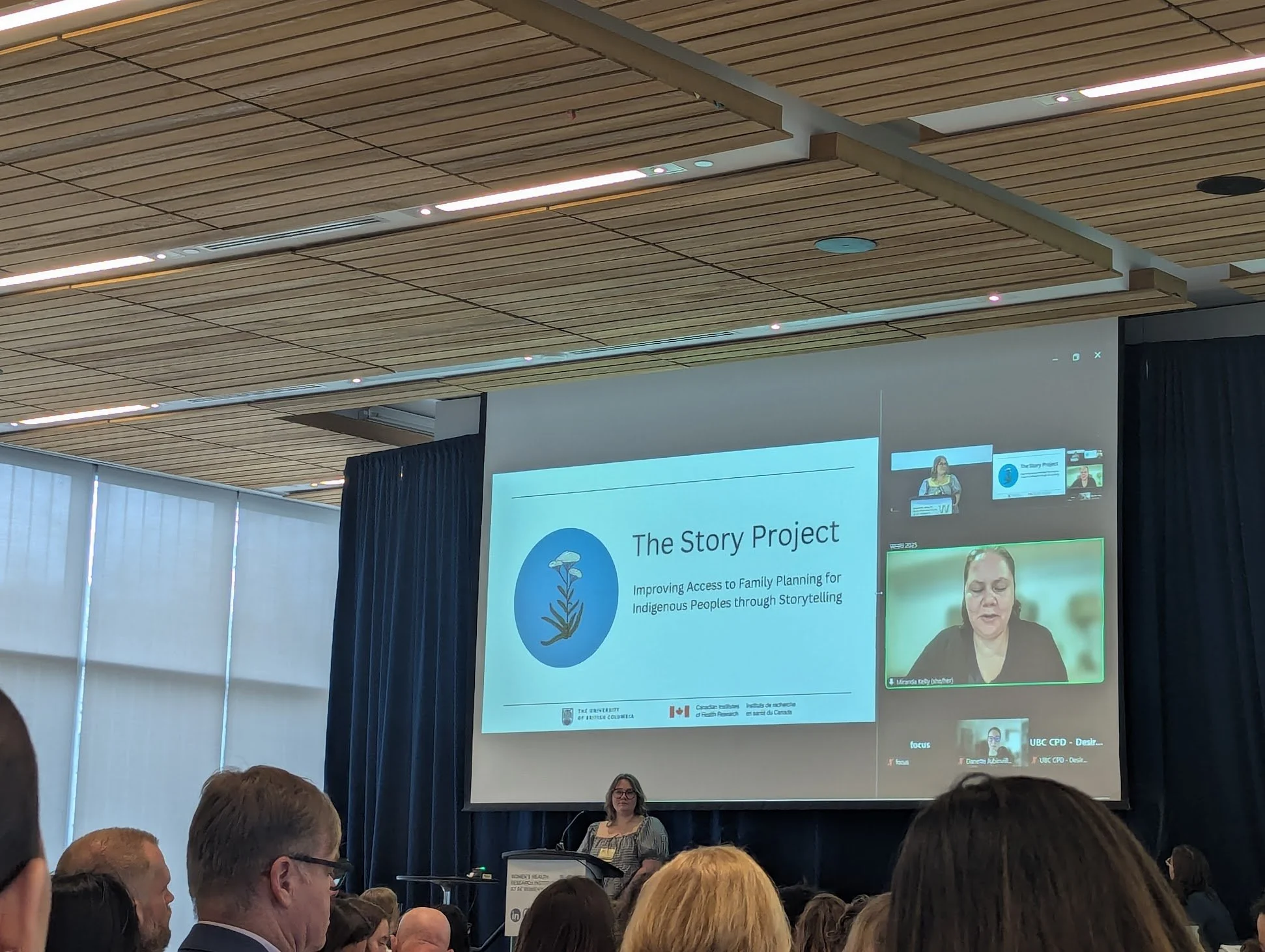
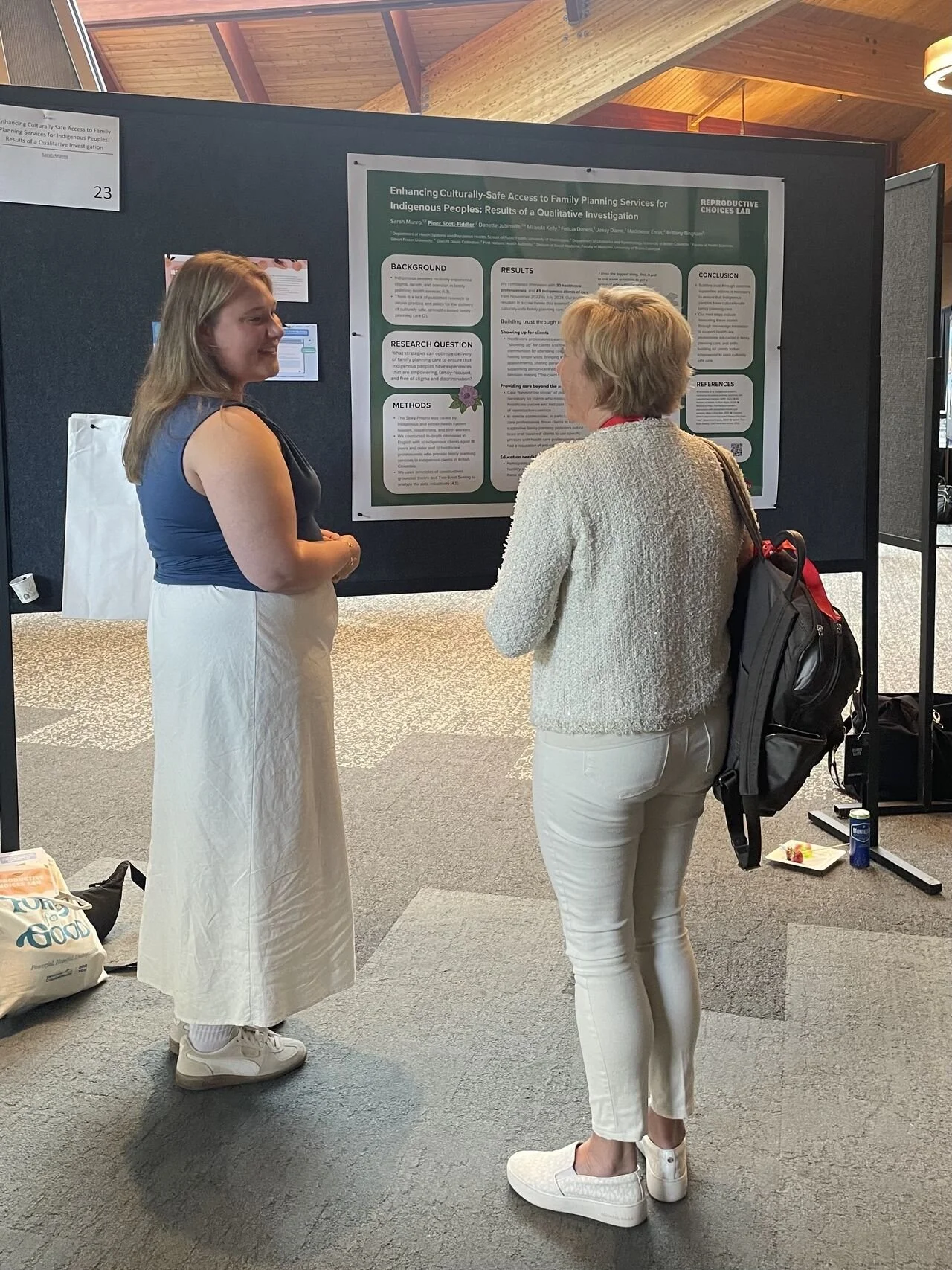
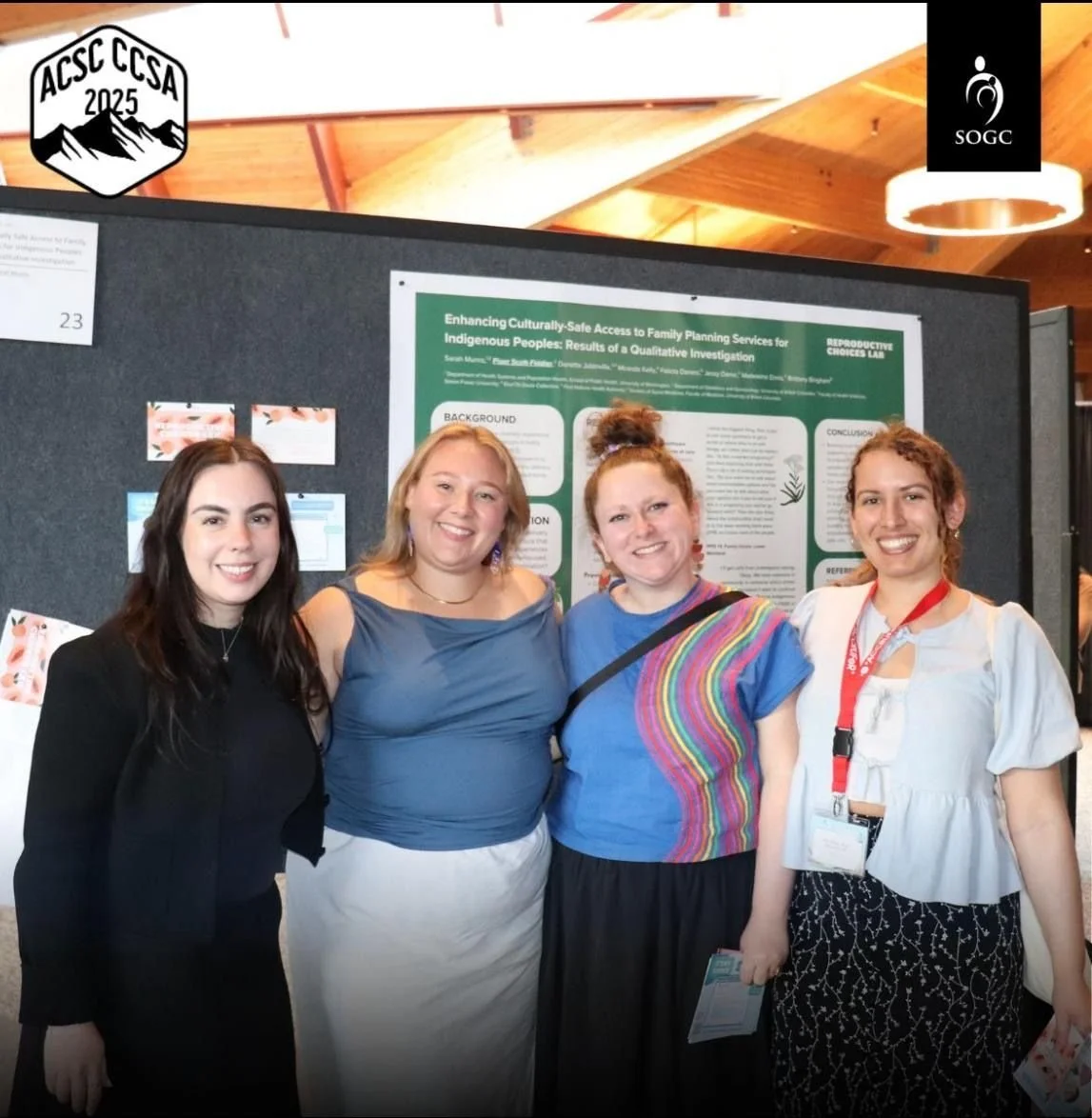
Original artwork by Ocean Hyland








